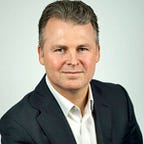Why do I freelance?
I’ve been a full-time freelance engineer and consultant for a year now. One question I get asked more than almost any other is “why do you freelance?”.
Although freelance work is becoming more common, especially in fields heavily influenced by the internet, it is still quite uncommon here in Australia for engineers to work this way.
I got into freelancing like many others — I was out of work. In late 2013 my former employer, a technical consulting firm, made my position redundant. I spent all of 2014 searching for my next full-time job. The job market in Australia for engineers and environmental people was very poor. Australia had recently elected a government that was systematically unwinding many programs that had supported my career for the previous four years.
Unsurprisingly, full-time work was very hard to come by. With the large numbers of engineers being laid off, competition for jobs was intense.
So while I continued the job search, I reached out to my network of contacts across industry and consulting for whatever work they had available. I managed to find pieces of work at a coal mining business, a large energy business, and several consulting businesses. I also continued my university lecturing work at Monash University, which is a modest time commitment (1–2 days per week for one semester per year).
I managed to secure full-time employment by early 2015. However, after several months I was already getting itchy feet. I had been bitten by the freelancing bug and wanted to get back to it. It was surprising even to me — having sought a full-time job for a full year, I was ready to walk away so soon.
I had a difficult decision to make. Stay with the full-time job, which I had worked so hard to get, or head out on my own, which I really wanted to do. This was a classic head vs heart decision. The heart won out.
I resigned in mid 2015 and established Sustainable Services as my vehicle for freelance work the following month.
So what was so compelling about freelancing? A big part of it is freedom.
Freedom to choose the clients I work for.
Freedom to decide how and when I will work — and how much time I give to my work versus the time I give to my family, friends, hobbies and relaxation.
Freedom to choose the tools of my work — the computer, software, cloud-based systems and mobile technology I prefer.
Not needing to commute to work each day is definitely a bonus.
I believe my clients also benefit from me working this way. I have gained a broader suite of experience and skills since going freelance, a directly result of needing to pursue many avenues of work. My clients benefit from this broader experience in my work.
Clients also get better value. With lower overheads I am able to offer my services at a better price than I could when working for a larger consulting business.
Recently a client asked if I’d consider returning to full-time employment. I won’t say never, but it would have to be the most incredible opportunity for me to consider it.
The variability of income can be challenging at times. And it sometimes gets a bit lonely working on my own. But I still love it. I expect to keep freelancing as long as the work is there.
David T. Kearns PhD is a Melbourne, Australia-based engineering and sustainability consultant with a background in process/chemical engineering. He established environmental and engineering consulting business Sustainable Services in 2015, offering technical and environmental services across a range of energy and resource industries. He is a lecturer in Sustainable Processing at Monash University and an occasional lecturer at the University of Melbourne.
Originally published at Sustainable Services.
